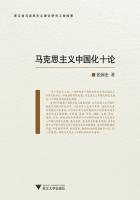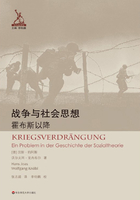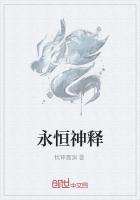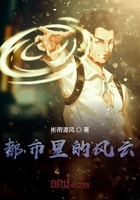Nicolo Machiavelli was born at Florence on 3rd May 1469. He was the second son of Bernardo di Nicolo Machiavelli, a lawyer of some repute, and of Bartolommea di Stefano Nelli, his wife. Both parents were members of the old Florentine nobility.
His life falls naturally into three periods, each of which singularly enough constitutes a distinct and important era in the history of Florence. His youth was concurrent with the greatness of Florence as an Italian power under the guidance of Lorenzo de' Medici, Il Magnifico. The downfall of the Medici in Florence occurred in 1494, in which year Machiavelli entered the public service. During his official career Florence was free under the government of a Republic, which lasted until 1512, when the Medici returned to power, and Machiavelli lost his office. The Medici again ruled Florence from 1512 until 1527, when they were once more driven out. This was the period of Machiavelli's literary activity and increasing influence; but he died, within a few weeks of the expulsion of the Medici, on 22nd June 1527, in his fifty-eighth year, without having regained office.
YOUTH — Aet. 1-25—1469-94
Although there is little recorded of the youth of Machiavelli, the Florence of those days is so well known that the early environment of this representative citizen may be easily imagined. Florence has been described as a city with two opposite currents of life, one directed by the fervent and austere Savonarola, the other by the splendour-loving Lorenzo. Savonarola's influence upon the young Machiavelli must have been slight, for although at one time he wielded immense power over the fortunes of Florence, he only furnished Machiavelli with a subject of a gibe in "The Prince," where he is cited as an example of an unarmed prophet who came to a bad end. Whereas the magnificence of the Medicean rule during the life of Lorenzo appeared to have impressed Machiavelli strongly, for he frequently recurs to it in his writings, and it is to Lorenzo's grandson that he dedicates "The Prince."
Machiavelli, in his "History of Florence," gives us a picture of the young men among whom his youth was passed. He writes: "They were freer than their forefathers in dress and living, and spent more in other kinds of excesses, consuming their time and money in idleness, gaming, and women; their chief aim was to appear well dressed and to speak with wit and acuteness, whilst he who could wound others the most cleverly was thought the wisest." In a letter to his son Guido, Machiavelli shows why youth should avail itself of its opportunities for study, and leads us to infer that his own youth had been so occupied. He writes: "I have received your letter, which has given me the greatest pleasure, especially because you tell me you are quite restored in health, than which I could have no better news; for if God grant life to you, and to me, I hope to make a good man of you if you are willing to do your share." Then, writing of a new patron, he continues: "This will turn out well for you, but it is necessary for you to study; since, then, you have no longer the excuse of illness, take pains to study letters and music, for you see what honour is done to me for the little skill I have. Therefore, my son, if you wish to please me, and to bring success and honour to yourself, do right and study, because others will help you if you help yourself."
OFFICE — Aet. 25-43—1494-1512
The second period of Machiavelli's life was spent in the service of the free Republic of Florence, which flourished, as stated above, from the expulsion of the Medici in 1494 until their return in 1512. After serving four years in one of the public offices he was appointed Chancellor and Secretary to the Second Chancery, the Ten of Liberty and Peace. Here we are on firm ground when dealing with the events of Machiavelli's life, for during this time he took a leading part in the affairs of the Republic, and we have its decrees, records, and dispatches to guide us, as well as his own writings. A mere recapitulation of a few of his transactions with the statesmen and soldiers of his time gives a fair indication of his activities, and supplies the sources from which he drew the experiences and characters which illustrate "The Prince."
His first mission was in 1499 to Catherina Sforza, "my lady of Forli" of "The Prince," from whose conduct and fate he drew the moral that it is far better to earn the confidence of the people than to rely on fortresses. This is a very noticeable principle in Machiavelli, and is urged by him in many ways as a matter of vital importance to princes.
In 1500 he was sent to France to obtain terms from Louis XII for continuing the war against Pisa: this king it was who, in his conduct of affairs in Italy, committed the five capital errors in statecraft summarized in "The Prince," and was consequently driven out. He, also, it was who made the dissolution of his marriage a condition of support to Pope Alexander VI; which leads Machiavelli to refer those who urge that such promises should be kept to what he has written concerning the faith of princes.
Machiavelli's public life was largely occupied with events arising out of the ambitions of Pope Alexander VI and his son, Cesare Borgia, the Duke Valentino, and these characters fill a large space of "The Prince." Machiavelli never hesitates to cite the actions of the duke for the benefit of usurpers who wish to keep the states they have seized; he can, indeed, find no precepts to offer so good as the pattern of Cesare Borgia's conduct, insomuch that Cesare is acclaimed by some critics as the "hero" of "The Prince." Yet in "The Prince" the duke is in point of fact cited as a type of the man who rises on the fortune of others, and falls with them; who takes every course that might be expected from a prudent man but the course which will save him; who is prepared for all eventualities but the one which happens; and who, when all his abilities fail to carry him through, exclaims that it was not his fault, but an extraordinary and unforeseen fatality.
On the death of Pius III, in 1503, Machiavelli was sent to Rome to watch the election of his successor, and there he saw Cesare Borgia cheated into allowing the choice of the College to fall on Giuliano delle Rovere (Julius II), who was one of the cardinals that had most reason to fear the duke. Machiavelli, when commenting on this election, says that he who thinks new favours will cause great personages to forget old injuries deceives himself. Julius did not rest until he had ruined Cesare.
It was to Julius II that Machiavelli was sent in 1506, when that pontiff was commencing his enterprise against Bologna; which he brought to a successful issue, as he did many of his other adventures, owing chiefly to his impetuous character. It is in reference to Pope Julius that Machiavelli moralizes on the resemblance between Fortune and women, and concludes that it is the bold rather than the cautious man that will win and hold them both.
It is impossible to follow here the varying fortunes of the Italian states, which in 1507 were controlled by France, Spain, and Germany, with results that have lasted to our day; we are concerned with those events, and with the three great actors in them, so far only as they impinge on the personality of Machiavelli. He had several meetings with Louis XII of France, and his estimate of that monarch's character has already been alluded to. Machiavelli has painted Ferdinand of Aragon as the man who accomplished great things under the cloak of religion, but who in reality had no mercy, faith, humanity, or integrity; and who, had he allowed himself to be influenced by such motives, would have been ruined. The Emperor Maximilian was one of the most interesting men of the age, and his character has been drawn by many hands; but Machiavelli, who was an envoy at his court in 1507-8, reveals the secret of his many failures when he describes him as a secretive man, without force of character—ignoring the human agencies necessary to carry his schemes into effect, and never insisting on the fulfilment of his wishes.
The remaining years of Machiavelli's official career were filled with events arising out of the League of Cambrai, made in 1508 between the three great European powers already mentioned and the pope, with the object of crushing the Venetian Republic. This result was attained in the battle of Vaila, when Venice lost in one day all that she had won in eight hundred years. Florence had a difficult part to play during these events, complicated as they were by the feud which broke out between the pope and the French, because friendship with France had dictated the entire policy of the Republic. When, in 1511, Julius II finally formed the Holy League against France, and with the assistance of the Swiss drove the French out of Italy, Florence lay at the mercy of the Pope, and had to submit to his terms, one of which was that the Medici should be restored. The return of the Medici to Florence on 1st September 1512, and the consequent fall of the Republic, was the signal for the dismissal of Machiavelli and his friends, and thus put an end to his public career, for, as we have seen, he died without regaining office.
LITERATURE AND DEATH — Aet. 43-58—1512-27
On the return of the Medici, Machiavelli, who for a few weeks had vainly hoped to retain his office under the new masters of Florence, was dismissed by decree dated 7th November 1512. Shortly after this he was accused of complicity in an abortive conspiracy against the Medici, imprisoned, and put to the question by torture. The new Medicean pope, Leo X, procured his release, and he retired to his small property at San Casciano, near Florence, where he devoted himself to literature. In a letter to Francesco Vettori, dated 13th December 1513, he has left a very interesting description of his life at this period, which elucidates his methods and his motives in writing "The Prince." After describing his daily occupations with his family and neighbours, he writes: "The evening being come, I return home and go to my study; at the entrance I pull off my peasant-clothes, covered with dust and dirt, and put on my noble court dress, and thus becomingly re-clothed I pass into the ancient courts of the men of old, where, being lovingly received by them, I am fed with that food which is mine alone; where I do not hesitate to speak with them, and to ask for the reason of their actions, and they in their benignity answer me; and for four hours I feel no weariness, I forget every trouble, poverty does not dismay, death does not terrify me; I am possessed entirely by those great men. And because Dante says:
Knowledge doth come of learning well retained, Unfruitful else,
I have noted down what I have gained from their conversation, and have composed a small work on 'Principalities,' where I pour myself out as fully as I can in meditation on the subject, discussing what a principality is, what kinds there are, how they can be acquired, how they can be kept, why they are lost: and if any of my fancies ever pleased you, this ought not to displease you: and to a prince, especially to a new one, it should be welcome: therefore I dedicate it to his Magnificence Giuliano. Filippo Casavecchio has seen it; he will be able to tell you what is in it, and of the discourses I have had with him; nevertheless, I am still enriching and polishing it."
The "little book" suffered many vicissitudes before attaining the form in which it has reached us. Various mental influences were at work during its composition; its title and patron were changed; and for some unknown reason it was finally dedicated to Lorenzo de' Medici. Although Machiavelli discussed with Casavecchio whether it should be sent or presented in person to the patron, there is no evidence that Lorenzo ever received or even read it: he certainly never gave Machiavelli any employment. Although it was plagiarized during Machiavelli's lifetime, "The Prince" was never published by him, and its text is still disputable.
Machiavelli concludes his letter to Vettori thus: "And as to this little thing [his book], when it has been read it will be seen that during the fifteen years I have given to the study of statecraft I have neither slept nor idled; and men ought ever to desire to be served by one who has reaped experience at the expense of others. And of my loyalty none could doubt, because having always kept faith I could not now learn how to break it; for he who has been faithful and honest, as I have, cannot change his nature; and my poverty is a witness to my honesty."
Before Machiavelli had got "The Prince" off his hands he commenced his "Discourse on the First Decade of Titus Livius," which should be read concurrently with "The Prince." These and several minor works occupied him until the year 1518, when he accepted a small commission to look after the affairs of some Florentine merchants at Genoa. In 1519 the Medicean rulers of Florence granted a few political concessions to her citizens, and Machiavelli with others was consulted upon a new constitution under which the Great Council was to be restored; but on one pretext or another it was not promulgated.
In 1520 the Florentine merchants again had recourse to Machiavelli to settle their difficulties with Lucca, but this year was chiefly remarkable for his re-entry into Florentine literary society, where he was much sought after, and also for the production of his "Art of War." It was in the same year that he received a commission at the instance of Cardinal de' Medici to write the "History of Florence," a task which occupied him until 1525. His return to popular favour may have determined the Medici to give him this employment, for an old writer observes that "an able statesman out of work, like a huge whale, will endeavour to overturn the ship unless he has an empty cask to play with."
When the "History of Florence" was finished, Machiavelli took it to Rome for presentation to his patron, Giuliano de' Medici, who had in the meanwhile become pope under the title of Clement VII. It is somewhat remarkable that, as, in 1513, Machiavelli had written "The Prince" for the instruction of the Medici after they had just regained power in Florence, so, in 1525, he dedicated the "History of Florence" to the head of the family when its ruin was now at hand. In that year the battle of Pavia destroyed the French rule in Italy, and left Francis I a prisoner in the hands of his great rival, Charles V. This was followed by the sack of Rome, upon the news of which the popular party at Florence threw off the yoke of the Medici, who were once more banished.
Machiavelli was absent from Florence at this time, but hastened his return, hoping to secure his former office of secretary to the "Ten of Liberty and Peace." Unhappily he was taken ill soon after he reached Florence, where he died on 22nd June 1527.
THE MAN AND HIS WORKS
No one can say where the bones of Machiavelli rest, but modern Florence has decreed him a stately cenotaph in Santa Croce, by the side of her most famous sons; recognizing that, whatever other nations may have found in his works, Italy found in them the idea of her unity and the germs of her renaissance among the nations of Europe. Whilst it is idle to protest against the world-wide and evil signification of his name, it may be pointed out that the harsh construction of his doctrine which this sinister reputation implies was unknown to his own day, and that the researches of recent times have enabled us to interpret him more reasonably. It is due to these inquiries that the shape of an "unholy necromancer," which so long haunted men's vision, has begun to fade.
Machiavelli was undoubtedly a man of great observation, acuteness, and industry; noting with appreciative eye whatever passed before him, and with his supreme literary gift turning it to account in his enforced retirement from affairs. He does not present himself, nor is he depicted by his contemporaries, as a type of that rare combination, the successful statesman and author, for he appears to have been only moderately prosperous in his several embassies and political employments. He was misled by Catherina Sforza, ignored by Louis XII, overawed by Cesare Borgia; several of his embassies were quite barren of results; his attempts to fortify Florence failed, and the soldiery that he raised astonished everybody by their cowardice. In the conduct of his own affairs he was timid and time-serving; he dared not appear by the side of Soderini, to whom he owed so much, for fear of compromising himself; his connection with the Medici was open to suspicion, and Giuliano appears to have recognized his real forte when he set him to write the "History of Florence," rather than employ him in the state. And it is on the literary side of his character, and there alone, that we find no weakness and no failure.
Although the light of almost four centuries has been focused on "The Prince," its problems are still debatable and interesting, because they are the eternal problems between the ruled and their rulers. Such as they are, its ethics are those of Machiavelli's contemporaries; yet they cannot be said to be out of date so long as the governments of Europe rely on material rather than on moral forces. Its historical incidents and personages become interesting by reason of the uses which Machiavelli makes of them to illustrate his theories of government and conduct.
Leaving out of consideration those maxims of state which still furnish some European and eastern statesmen with principles of action, "The Prince" is bestrewn with truths that can be proved at every turn. Men are still the dupes of their simplicity and greed, as they were in the days of Alexander VI. The cloak of religion still conceals the vices which Machiavelli laid bare in the character of Ferdinand of Aragon. Men will not look at things as they really are, but as they wish them to be—and are ruined. In politics there are no perfectly safe courses; prudence consists in choosing the least dangerous ones. Then—to pass to a higher plane—Machiavelli reiterates that, although crimes may win an empire, they do not win glory. Necessary wars are just wars, and the arms of a nation are hallowed when it has no other resource but to fight.
It is the cry of a far later day than Machiavelli's that government should be elevated into a living moral force, capable of inspiring the people with a just recognition of the fundamental principles of society; to this "high argument" "The Prince" contributes but little. Machiavelli always refused to write either of men or of governments otherwise than as he found them, and he writes with such skill and insight that his work is of abiding value. But what invests "The Prince" with more than a merely artistic or historical interest is the incontrovertible truth that it deals with the great principles which still guide nations and rulers in their relationship with each other and their neighbours.
In translating "The Prince" my aim has been to achieve at all costs an exact literal rendering of the original, rather than a fluent paraphrase adapted to the modern notions of style and expression. Machiavelli was no facile phrasemonger; the conditions under which he wrote obliged him to weigh every word; his themes were lofty, his substance grave, his manner nobly plain and serious. "Quis eo fuit unquam in partiundis rebus, in definiendis, in explanandis pressior?" In "The Prince," it may be truly said, there is reason assignable, not only for every word, but for the position of every word. To an Englishman of Shakespeare's time the translation of such a treatise was in some ways a comparatively easy task, for in those times the genius of the English more nearly resembled that of the Italian language; to the Englishman of to-day it is not so simple. To take a single example: the word "intrattenere," employed by Machiavelli to indicate the policy adopted by the Roman Senate towards the weaker states of Greece, would by an Elizabethan be correctly rendered "entertain," and every contemporary reader would understand what was meant by saying that "Rome entertained the Aetolians and the Achaeans without augmenting their power." But to-day such a phrase would seem obsolete and ambiguous, if not unmeaning: we are compelled to say that "Rome maintained friendly relations with the Aetolians," etc., using four words to do the work of one. I have tried to preserve the pithy brevity of the Italian so far as was consistent with an absolute fidelity to the sense. If the result be an occasional asperity I can only hope that the reader, in his eagerness to reach the author's meaning, may overlook the roughness of the road that leads him to it.
The following is a list of the works of Machiavelli:
Principal works. Discorso sopra le cose di Pisa, 1499; Del modo di trattare i popoli della Valdichiana ribellati, 1502; Del modo tenuto dal duca Valentino nell' ammazzare Vitellozzo Vitelli, Oliverotto da Fermo, etc., 1502; Discorso sopra la provisione del danaro, 1502; Decennale primo (poem in terza rima), 1506; Ritratti delle cose dell' Alemagna, 1508-12; Decennale secondo, 1509; Ritratti delle cose di Francia, 1510; Discorsi sopra la prima deca di T. Livio, 3 vols., 1512-17; Il Principe, 1513; Andria, comedy translated from Terence, 1513 (?); Mandragola, prose comedy in five acts, with prologue in verse, 1513; Della lingua (dialogue), 1514; Clizia, comedy in prose, 1515 (?); Belfagor arcidiavolo (novel), 1515; Asino d'oro (poem in terza rima), 1517; Dell' arte della guerra, 1519-20; Discorso sopra il riformare lo stato di Firenze, 1520; Sommario delle cose della citta di Lucca, 1520; Vita di Castruccio Castracani da Lucca, 1520; Istorie fiorentine, 8 books, 1521-5; Frammenti storici, 1525.
Other poems include Sonetti, Canzoni, Ottave, and Canti carnascialeschi.
Editions. Aldo, Venice, 1546; della Tertina, 1550; Cambiagi, Florence, 6 vols., 1782-5; dei Classici, Milan, 10 1813; Silvestri, 9 vols., 1820-2; Passerini, Fanfani, Milanesi, 6 vols. only published, 1873-7.
Minor works. Ed. F. L. Polidori, 1852; Lettere familiari, ed. E. Alvisi, 1883, 2 editions, one with excisions; Credited Writings, ed. G. Canestrini, 1857; Letters to F. Vettori, see A. Ridolfi, Pensieri intorno allo scopo di N. Machiavelli nel libro Il Principe, etc.; D. Ferrara, The Private Correspondence of Nicolo Machiavelli, 1929.















